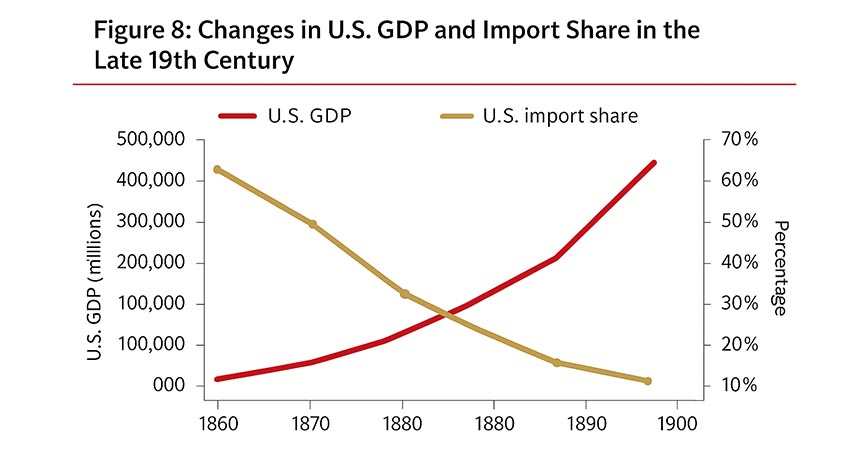
In 1890, U.S. Congressman William McKinley proposed the McKinley Tariff Act, which raised the average tariff on imported goods to 49.5 per cent. This initiative, although controversial, left a strong mark on American industrial history, especially on new manufacturing industries such as tinplate.
The McKinley Tariff brought a ‘golden age’ of manufacturing to the United States in the short term. To tinplate, for example, the end of the 19th century, the United States almost entirely dependent on imports from Britain. After the high tariff policy, the United States tinplate industry took off rapidly, imports fell rapidly, to 1898 has basically achieved self-sufficiency. According to economist Douglas A. Irwin, the tariffs advanced the development of the American tinplate manufacturing industry by a full 10 years.
However, protectionism is not without cost. High domestic selling prices are passed on to consumers, triggering a popular backlash. Agricultural groups, in particular, faced both rising costs and retaliatory tariffs in foreign markets. The result: the Republican Party suffered a crushing defeat in the 1890 congressional midterm elections, lost the 1892 presidential election, and the U.S. economy subsequently fell into recession.
Even so, McKinley did not give up the tariff tool. 1897, he pushed again through the Dingley Tariff Act, further increase the tariffs on sugar, silk, porcelain and other commodities, this policy has become the longest implementation of tariffs in the history of the United States (up to 12 years). At this stage, the U.S. economic structure to accelerate the transformation of the manufacturing industry for the first time in the output value beyond agriculture, the United States embarked on the road of industrial power.

In the early days of U.S. industrialisation, tariffs undoubtedly provided an important breeding ground for local metal packaging manufacturing - including tinplate cans. However, with highly integrated global supply chains, today's trade environment is very different. While high tariffs can boost local manufacturing power, they can also exacerbate supply chain tensions, drive up costs, and even trigger inflation.
As a professional tin can manufacturer in China, we understand that industrial competition has long shifted from single price to comprehensive strength. Today's ‘protection’ no longer relies solely on tariff barriers, but stems from comprehensive competitiveness in product innovation, delivery efficiency, environmentally friendly materials and flexible customisation.
The tariff policy of the McKinley era has brought profound insights into the development of manufacturing. In today's era where globalisation and geopolitics are constantly intertwined, Jinyu Can will also continue to be locally based and globally oriented, strengthening its product power and promoting tinplate packaging solutions to the world.